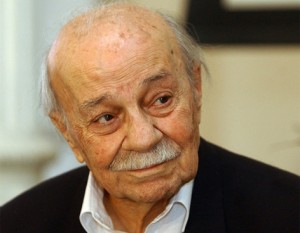“We are told that the air of the world is unbreathable. I agree with that. But the first Christians found each morning at their door an atmosphere saturated with vices, idols, and incense offered to the divinities. They were for more than two hundred years relegated, slandered and marginalized by the current of the social river which carried them away and rejected them altogether. Do you think that the grace of their baptism kept them away from urban life almost in its entirety? They renounced taking part in major civic performances, such as the entry into office of a magistrate, or the triumph of a victorious general, because none of these ceremonies could be inaugurated without a sacrifice of incense offered to the emperor, divine character. The grace of their baptism kept them away from the thermal baths, a morning meeting place highly prized by the Romans, because of the nudity of their bodies and the shamelessness of their attitudes. They also gave up circus shows because of the scenes of cruelty that made them the main subject. But these early Christians formed a society, and this society by force of spirit broke through the shell of ancient paganism. Their earthly hope was limited to the desire not to die before seeing Christ return on the clouds, and they were the founders of Christian Europe. »
Dom Gérard, in Tomorrow Christianity



 During 1987, I thought my time had come. My life was falling apart. Life never falls apart, it will take me a few years to figure it out; either it stops, or it is transformed. My life was therefore transformed, violently, intensely, it offered me the enantiodromos as the Greeks say. The enantiodromos is this road which splits, which separates, which becomes two, and confronts us with a choice. The enantiodromos allowed me to understand what freedom was. It was an unprecedented situation, I was about to realize it. This crossing where life takes a completely unexpected turn marks the passage from childhood to adulthood. This moment has no age. I mean you can experience it at any age. What you shouldn't do is not live it. Not understanding what differentiates the freedom experienced in childhood from the freedom chosen in adulthood. Because the choice made, we become another; the experience reveals to us and gives a framework and foundations to the personality.
During 1987, I thought my time had come. My life was falling apart. Life never falls apart, it will take me a few years to figure it out; either it stops, or it is transformed. My life was therefore transformed, violently, intensely, it offered me the enantiodromos as the Greeks say. The enantiodromos is this road which splits, which separates, which becomes two, and confronts us with a choice. The enantiodromos allowed me to understand what freedom was. It was an unprecedented situation, I was about to realize it. This crossing where life takes a completely unexpected turn marks the passage from childhood to adulthood. This moment has no age. I mean you can experience it at any age. What you shouldn't do is not live it. Not understanding what differentiates the freedom experienced in childhood from the freedom chosen in adulthood. Because the choice made, we become another; the experience reveals to us and gives a framework and foundations to the personality. 
